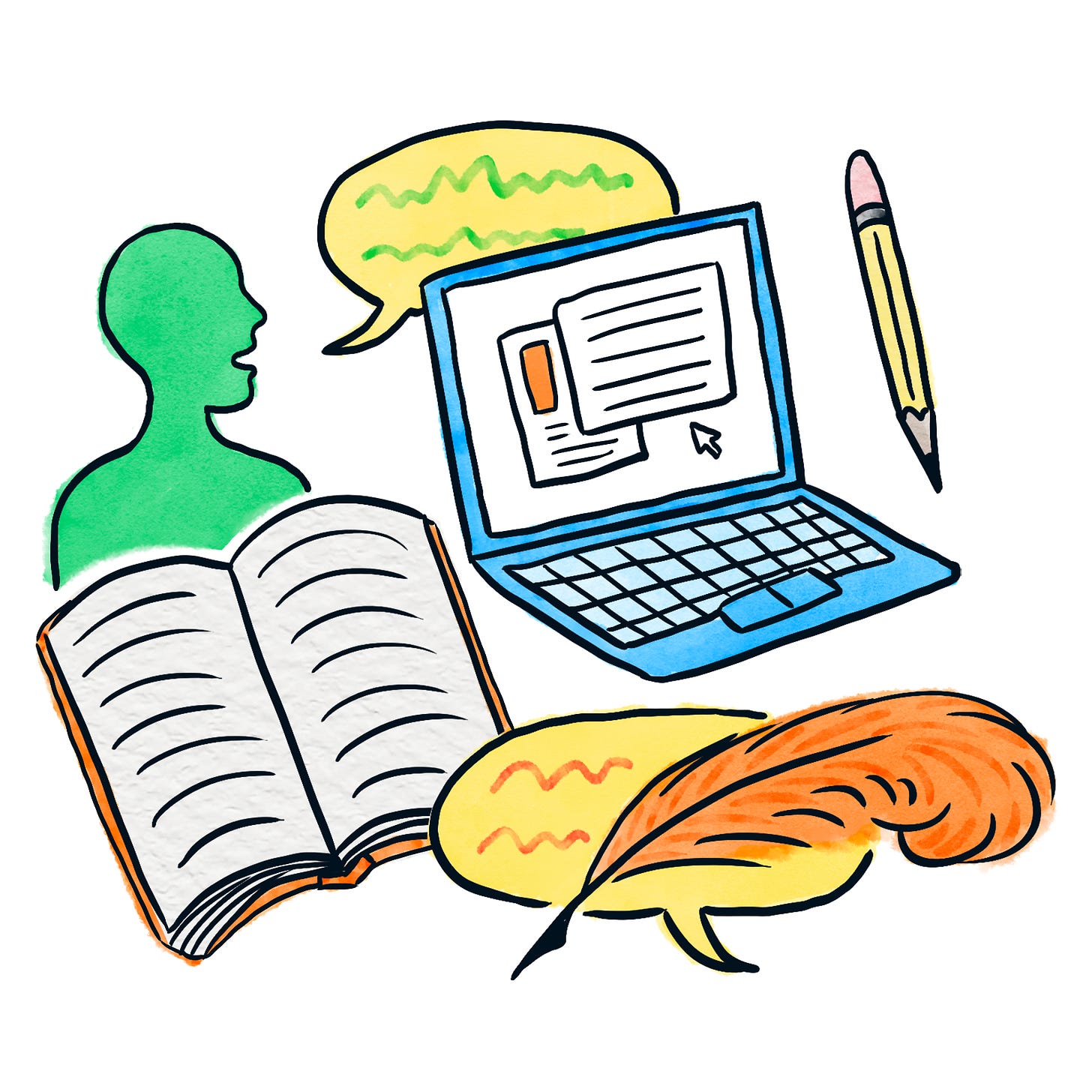
The eternal question, of course, is always how do we get Egan education out into the world? The answer that Egan himself gave was Learning in Depth°: a sprawling (twelve-year-long!) intensive study of one single, superficially-boring thing.1
All this year, Alessandro and I have been working on a much more compact, guided version of it — you might remember that we did a super smooshed test-run of it this summer: our “Learning in Depth Summer Intensive”.
Imaginary Interlocutor: How’d that go?
Participants’ feedback included…
“It doesn’t feel like school! It feels like playtime! :) ”
“I think it’s spectacular and I’m probably going to register for every cohort.”
“I like the freedom to kind of jump ship on the path I’m taking if necessary…. I feel excited about learning. (Yay!)”
“I love the class”
“I’m really LOVING LiD and have thrown myself into it with a Hermione-Granger-like enthusiasm! 5 stars, would highly recommend!”
I.I.: So, perfectly perfect?
Oh goodness would that have been nice. No: it was too intense. Guided challenges every weekday for six full weeks was way too much.
So, we’re doing it again… but we’re expanding it into a full academic year. You can read all about it at scienceisWEIRD.com/lid.2
If you’ve been reading this substack and thinking “Egan education sounds wonderful, too bad I didn’t get one”… then this Learning in Depth might be exactly what you’ve been wanting.
I.I.: Who’s this for?
Well, you, probably.
To be clear, on the surface we’ve decided to angle this one for (1) homeschooling parents, (2) teens — defined as kids 11 to 18 — and (3) parents and teens together. (We think it’ll be really cool to have multiple people in the same household discussing the same challenges, but working on different topics! For more, keep reading.)
But you don’t need to be a parent or teen or a homeschooler to join.
I.I.: How does the cohort work?
The day before the cohort begins (which will be Monday, October 7), you’ll be assigned a superficially boring topic:
These topics were hand-chosen by Egan and his team according to a bunch of nuanced criteria (which you can read about in his book Learning in Depth: A Simple Innovation that Can Transform Schooling.)
Throughout the year, we’ll help you break through the crust to discover the wonder (and whole worlds) it contains.
I.I.: How do you do that?
Pokes, quests, and a hyper-interactive TED talk.
1. Pokes
Twice a week, you’ll receive small challenges (called “pokes”). They’re nutty little activities built on Egan’s tools: e.g. stories, metaphors, songs, mental images, nonsense… You’ll have a day to complete each, and share it with the cohort. These give you something to focus on in your research.
Here’s an example from last time:
2. Quests
About once a month, you’ll receive a big challenge (a “quest”). These are more creative projects, and’ll require you to synthesize what you’ve been learning.
For example, you might wake up to discover that you’ve become your topic… and the UN General Assembly is knocking on your door, demanding that you share what it’s like to be you. Notes from last time:
3. Hyper-interactive TED talk
At the end of the year, you’ll work on a huge project — a presentation that grabs people’s emotions, engages their thinking, and leads them to something profound that you learned during your research.
We’re calling this a “hyper-interactive TED talk”… but another way of thinking of it is “a Science is WEIRD lesson”. (We’ll teach you the format I’ve created to use Egan to teach science. It also works for other subjects, though.)
I.I.: Sounds like a lot of research. What’s that like?
The cohort packs a research wallop — how to wend your way through academic articles, get responses from scholars, dissect (and speed-read, and slow-read) books,3 become a wizard of Wikipedia… and like before, we’ll do it all with the help of AI. You’ll learn to integrate ChatGPT/Claude/other AI’s with the rest of your thinking to extend what you’re capable of learning.4
I.I.: So it’s like those research-skills classes I had to take in college?
Ugh, I hope not.
We do build to precise academic knowledge, but first we ground participants in rich, emotion ways of understanding the world — through stories, senses, bodies, poems, art, puzzles, and so on. When we organically grow academics out of this, we get a vividly intellectual understanding.
tl;dr — you need to desperately need to learn about something deeply before college-level research skills become useful. We help you cultivate that first.
I.I.: Is this just like an “interest project” that some progressivist schools do?
Sorta… except this tends to work.
If you’ve ever gone to a school’s end-of-year “interest project” presentations, you might know what I’m talking about. Most students will show you posters filled with cool information… but then, when you engage them in conversation, not be able to tell you much of anything else. Most interest projects are, alas, slapped together at the last moment. Because of our regular challenges, your understanding will grow steadily. And because of Egan’s tools, your understanding will be personally meaningful. You’ll discover more about yourself as you go deep into the world.
I.I.: Big question: what’s with the “randomly-chosen boring topic” bit? Isn’t it better to learn about something you’re INTERESTED in?
The truth is, everything is interesting.
The irony is that even when interest projects work, they can inadvertently teach people that the rest of the world is boring, and that it’s our bespoke interests that make them come alive. Educationally, this is the opposite to what a lot of us think — that (to quote Egan)
we’re surrounded by mystery, and what we know is fascinating.
And of course, this is done through Egan’s tools.
By focusing intensely on one random topic, you can beef up different kinds of understanding. MYTHIC (🧙♂️) pushes into ROMANTIC (🦹♂️) , which evolves into PHILOSOPHIC (👩🔬). You’ll build on this on a stage of SOMATIC (🤸♀️) while IRONIC (😏) flits about in the wings.
I.I.: That’s all stuff I can learn all this through the blog, right?
Reading about ideas can be useful, but in the cohort you learn how to actually use Egan’s insights by, y’know, using them.
And that’s not always easy to do correctly! Naively applying Egan — sprinkling stories and games and whatnot in — sometimes can actually be worse than the lousy learning it’s replacing. (This is something that came up in the first round of responses to the book review. I doubted it, until Alessandro told me it’s very real.)
After finishing the first LiD cohort, Alessandro pointed out that we had a choice to make:
(A) make it even simpler (to be more suitable for the masses) or
(B) make it more transformative (by providing nuanced mentoring)
We decided to lean hard into (B) — which is why we’ve hired two especially helpful people from the first cohort to become mentors for the second. Alessandro — who is the person I turn to to better understand Egan! — will be mentoring them in some of the more subtle arts of Eganizing, and helping them guide the participants.
I.I.: How much does it cost?
It’s a year-long mentored experience that aims to be life-transformative, so we’re not able to make it cheap. (That’s the flip side to going with choice B!)
It’s $800 for the whole year (or $120/month), which matches something like two community college courses. We’ve found ways to make it more affordable, though! Like I said before, while you don’t need to be a parent, we’re angling this for families — so if you’d like to do two people in your household, you can get a second login for just $100 (or $15/month) more. The third is the same extra price, and anyone beyond that is free.5
Also, the first twenty sign ups get $300 off (or the final two months free). There are still a few of these spots left.
I.I.: Could I just sign up one person, but use the curriculum for many?
Absolutely — and we encourage it!
But with multiple sign ups, you get multiple accounts, and each person will be able to engage in the online community (including the mentoring).
I.I.: When does it start?
Just a few weeks from now — Monday, October 7 — and go for the rest of the 2024–25 school year (which is thirty weeks long, taking off the holidays).
I.I.: I’d like to know more.
Curious? Take a look at the webpage. And ask any questions in the comments below.
And if you haven’t read his jaunty 2008 essay on it yet, I suspect you’ll enjoy it.
Someday, we’ll give LiD its own gorgeous site. Someday, I’ll get around to reading The Brothers Karamazov. “Someday” will be flippin’ AWESOME.
The cohort comes with free access to readingHACKS, a course I first created while teaching in the Comparative History of Ideas department at the University of Washington. I, um, should probably say that somewhere on the page.
We’re pairing this with a much-updated version of a workshop I gave last year on ChatGPT, which you can watch online for free.
As a dad, I know how hard it can be to have a big family — and we just have three kids! Capping the price here (and allowing even bigger families in) is our own humble attempt at pronatalism. I don’t agree with everything Malcolm and Simone Collins say, but dang it, this is literally their doing.





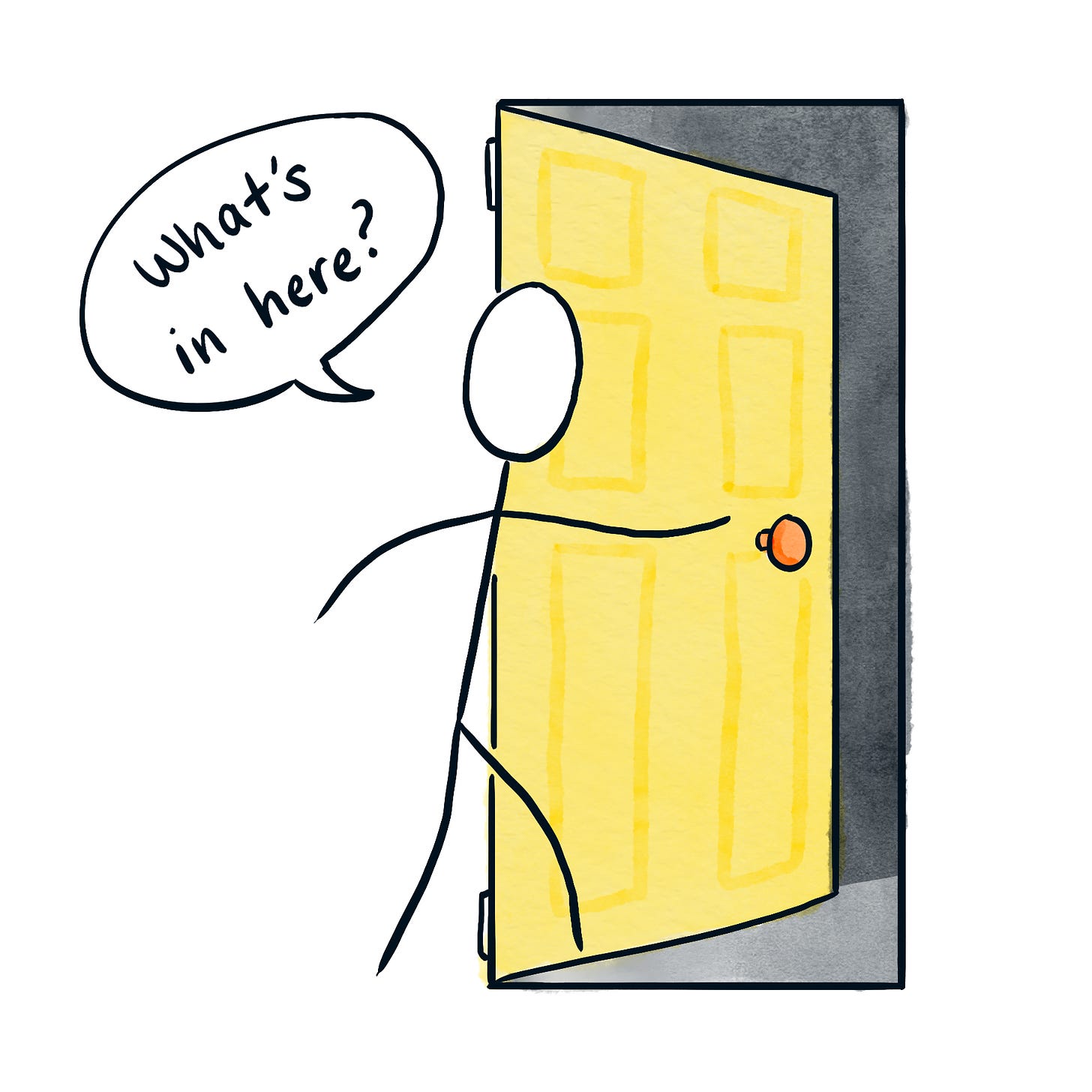
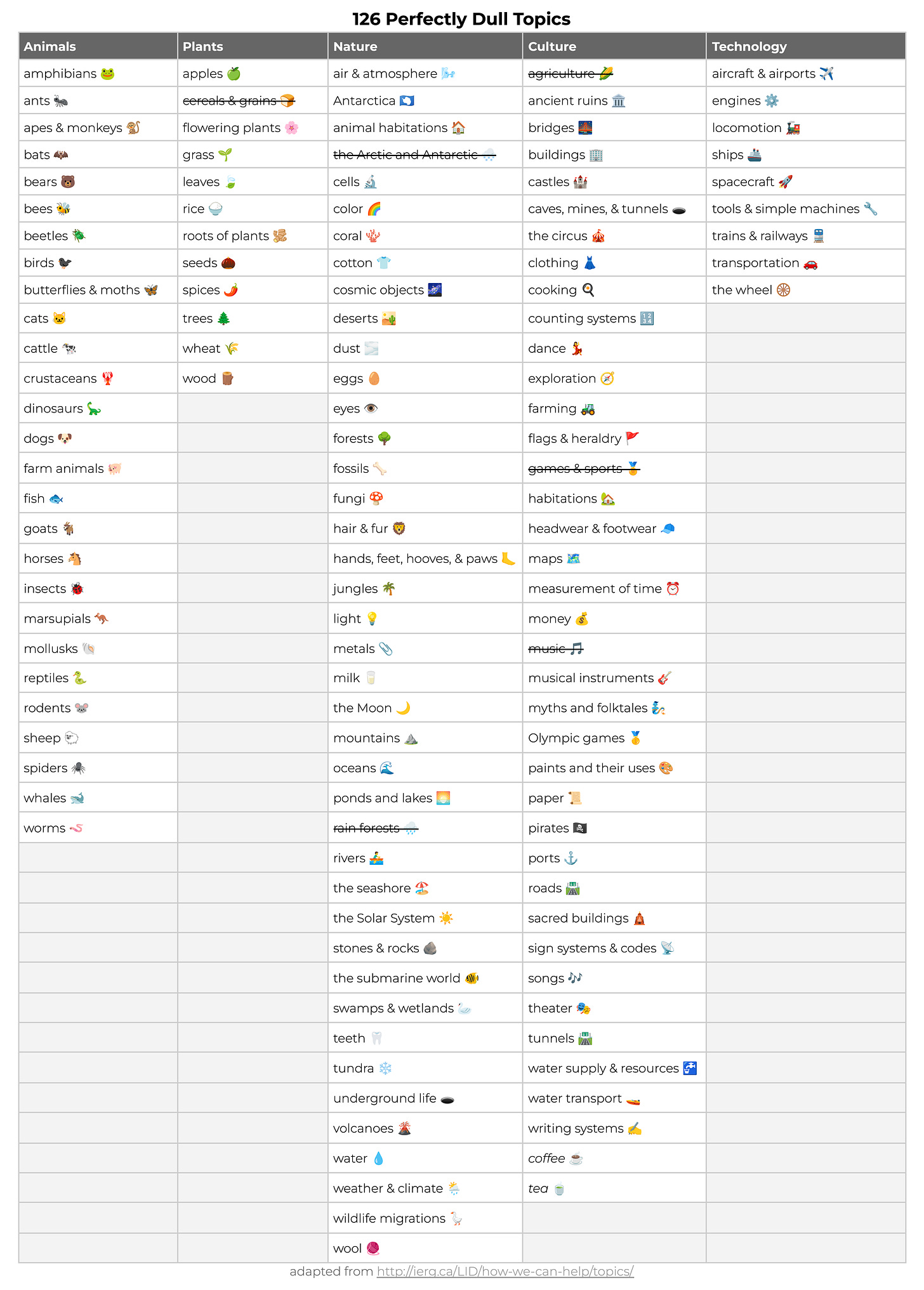
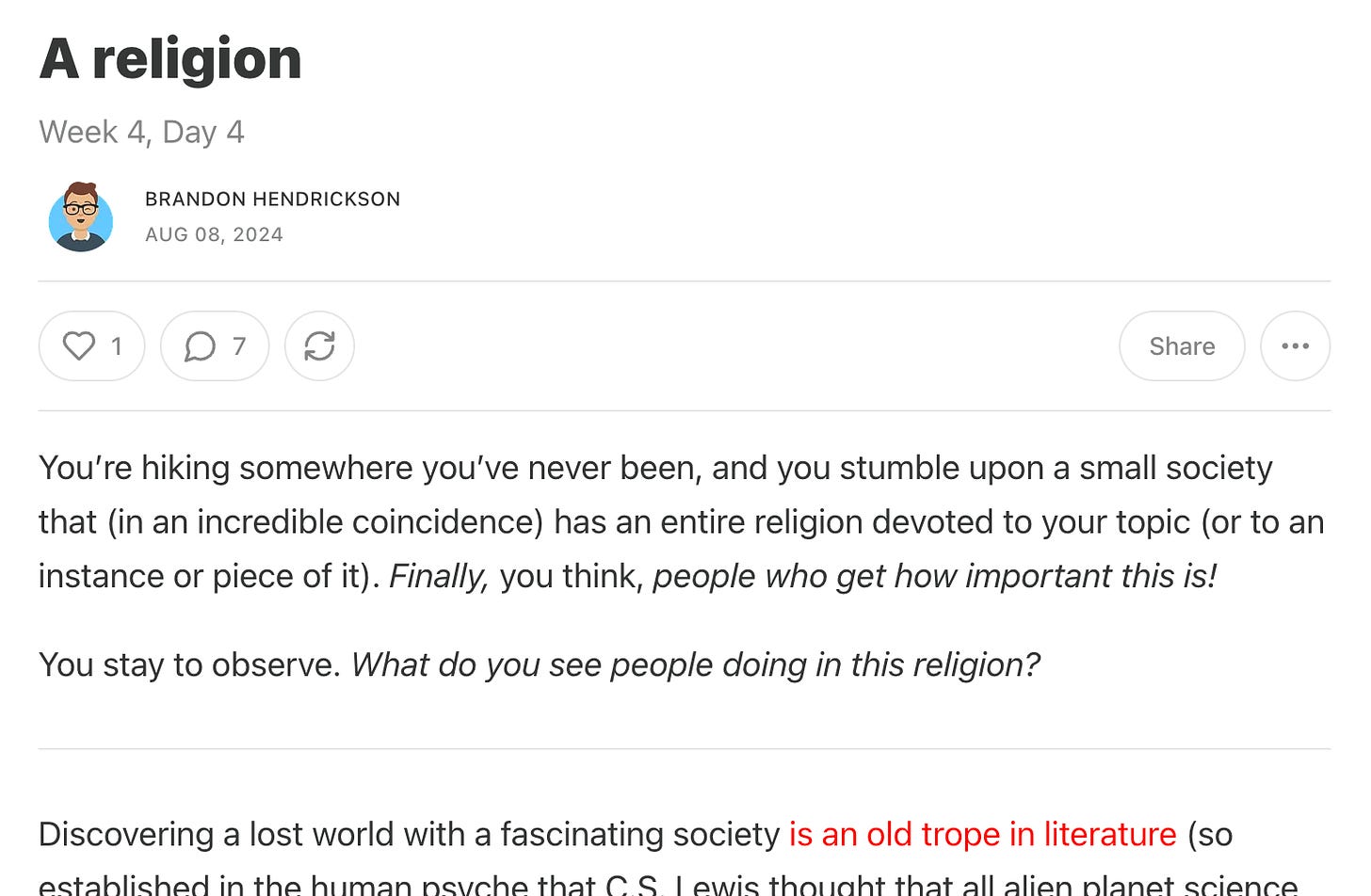
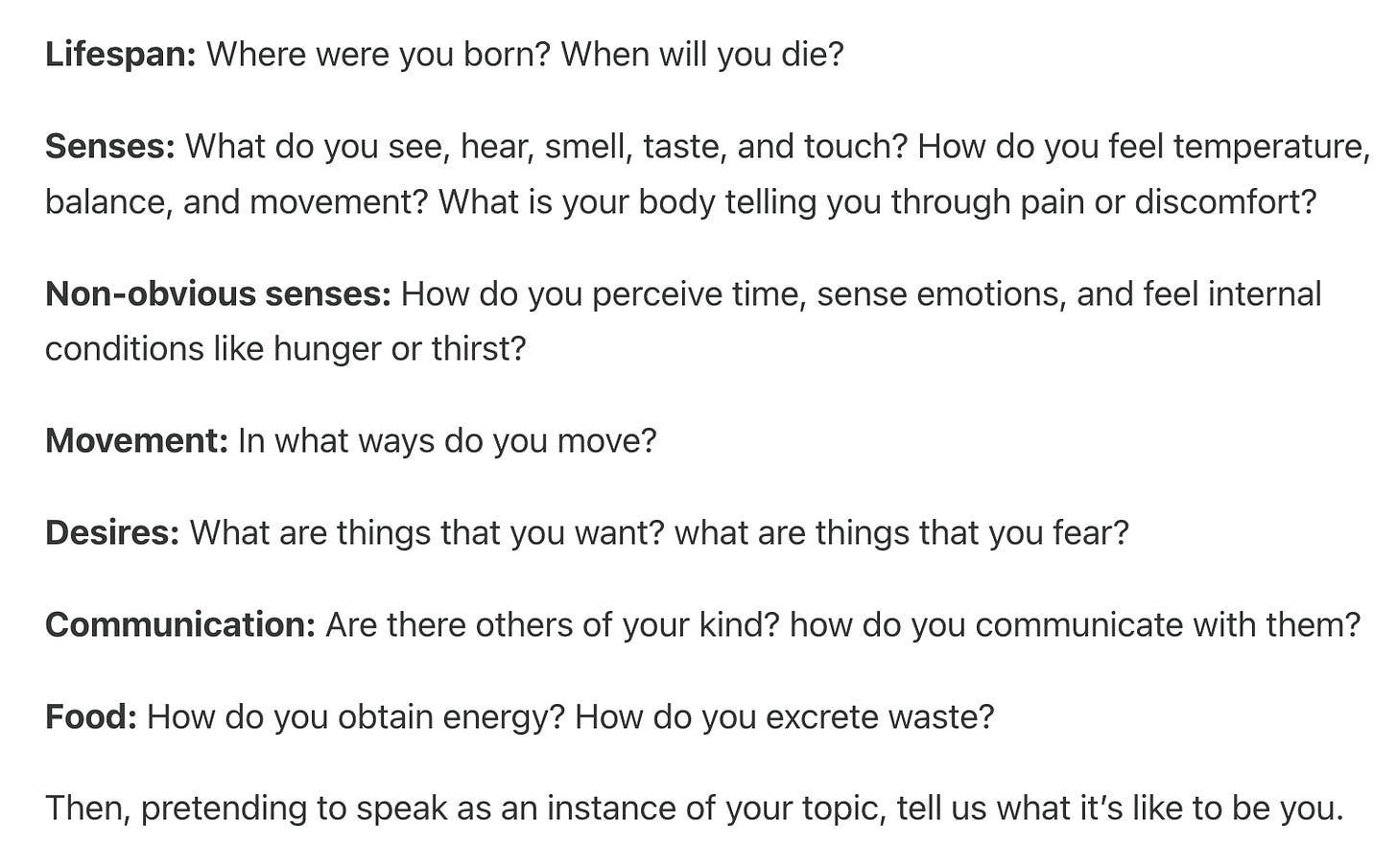
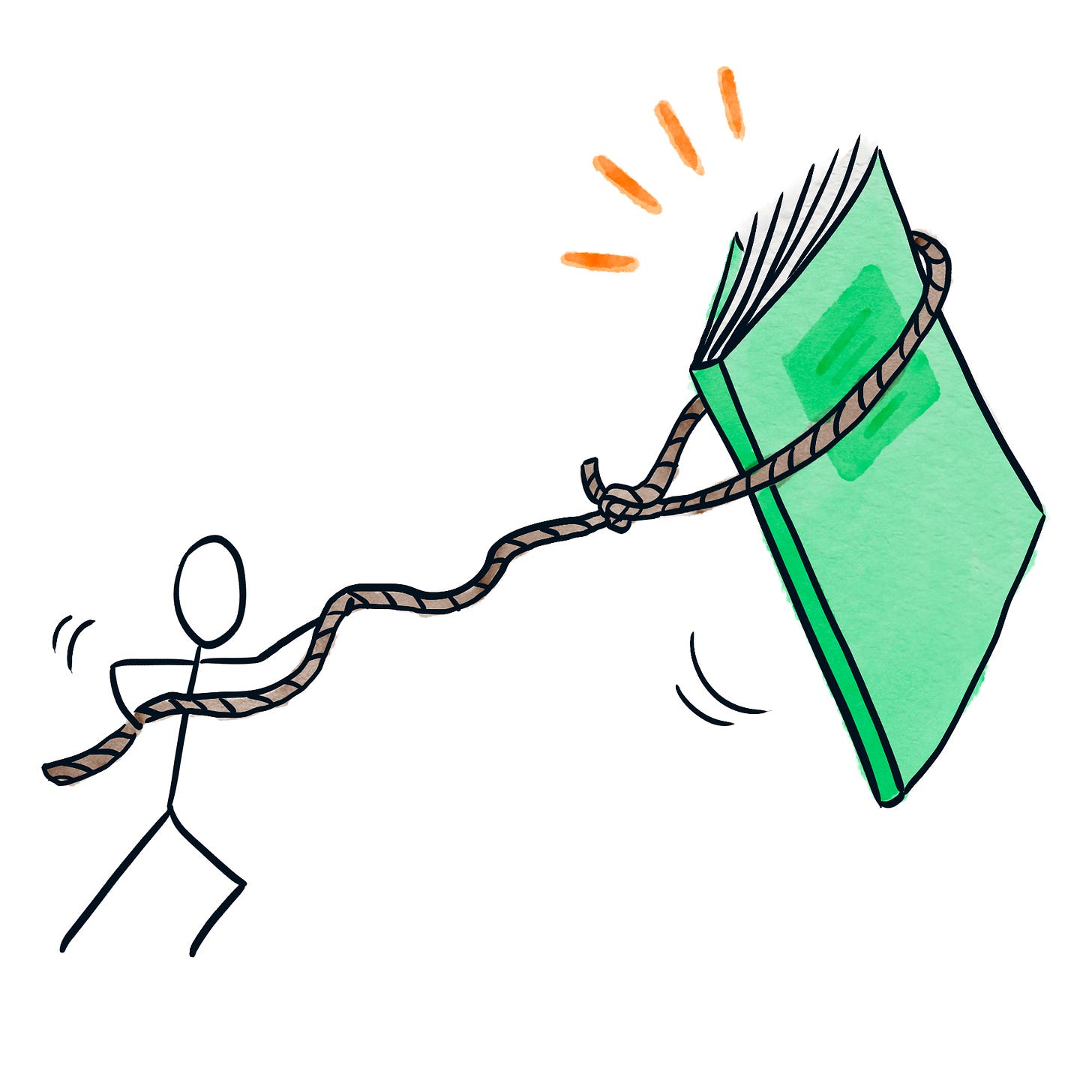
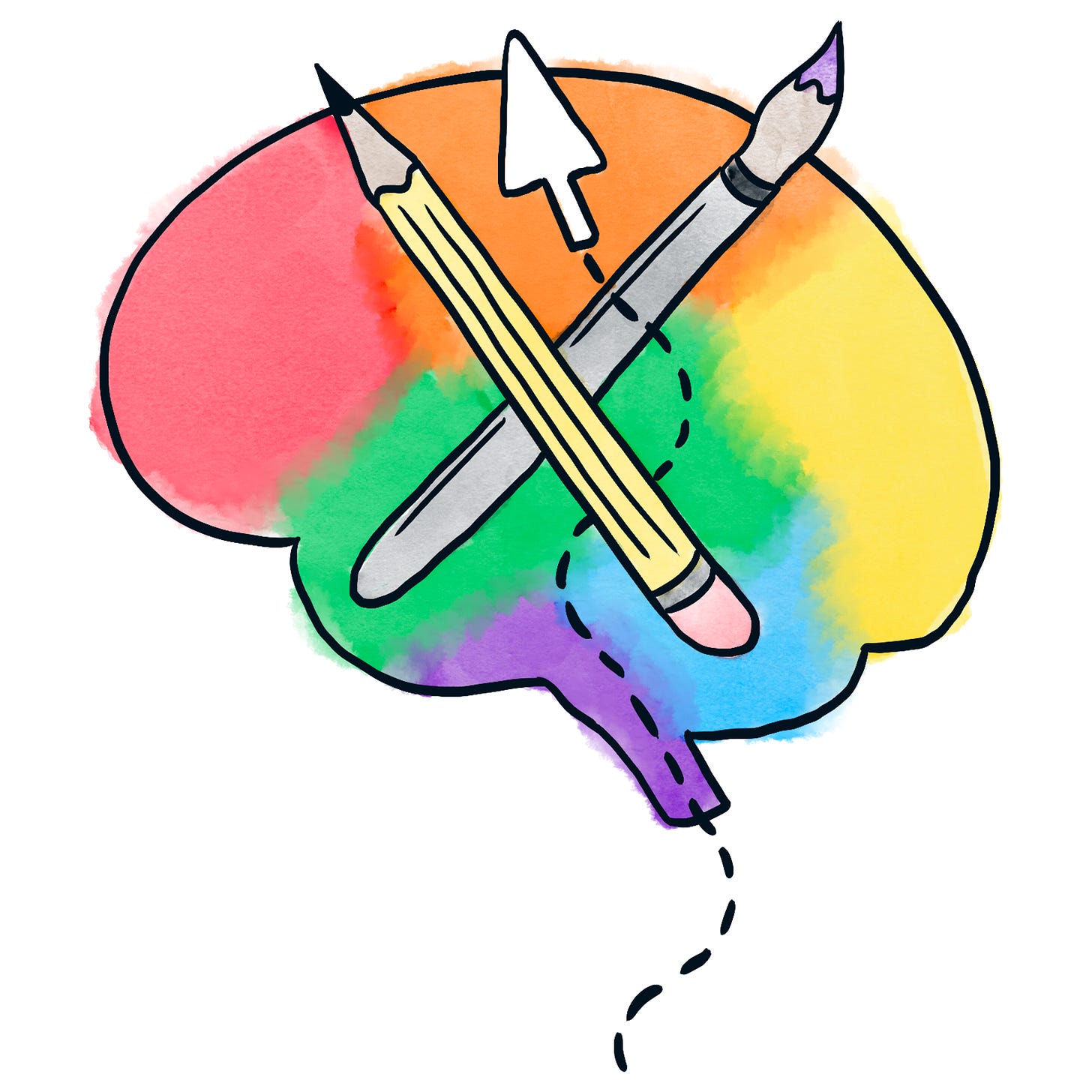
I would just like to say that I think this could be a VERY good course for any kind of educator interested in Egan education.
Home school parents, yes, but also class teachers, tutors, early childhood educators, anyone who is interested in A: making learning more motivating and powerful for others OR B: getting so deeply into a new topic that it becomes an alternative mental landscape that you can navigate at will - an extension of yourself.
Very impressive. It sounds like you’ve found a profoundly focused, innovative, and well-designed repackaging of Egan’s ideas. Shroud be an amazing experiment. Good luck!